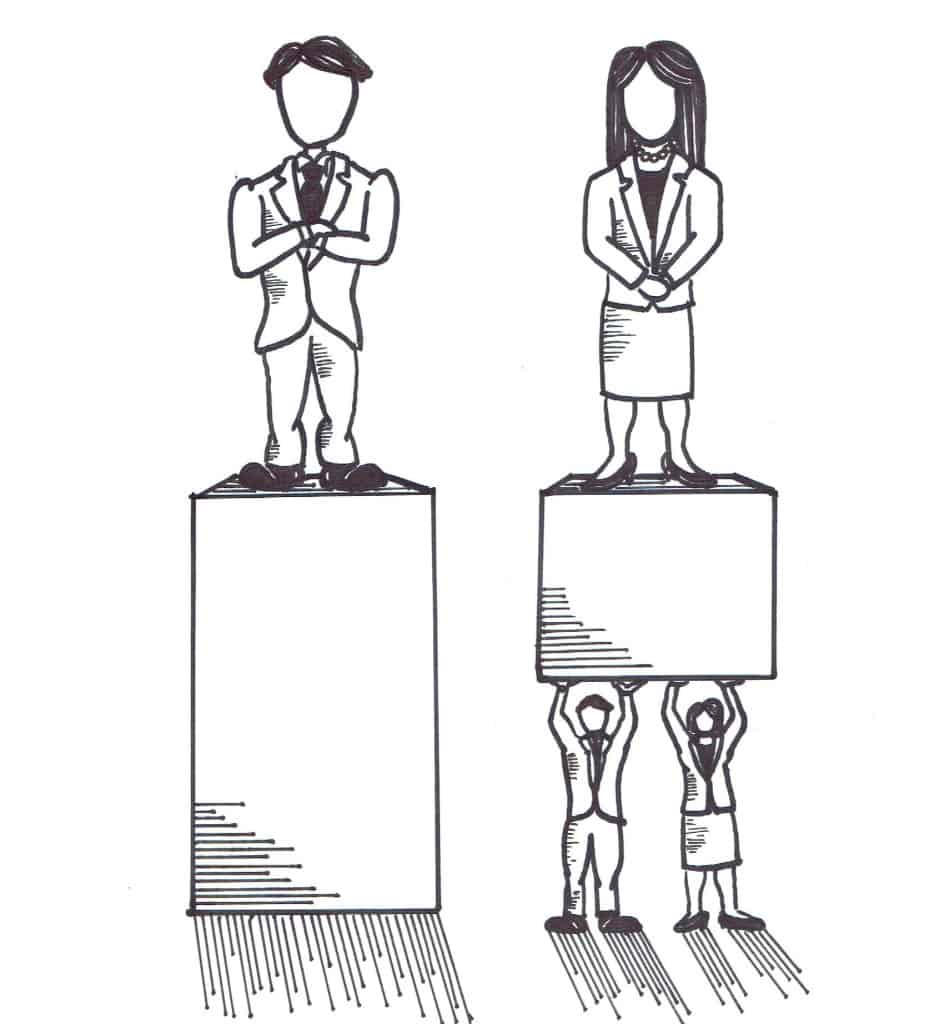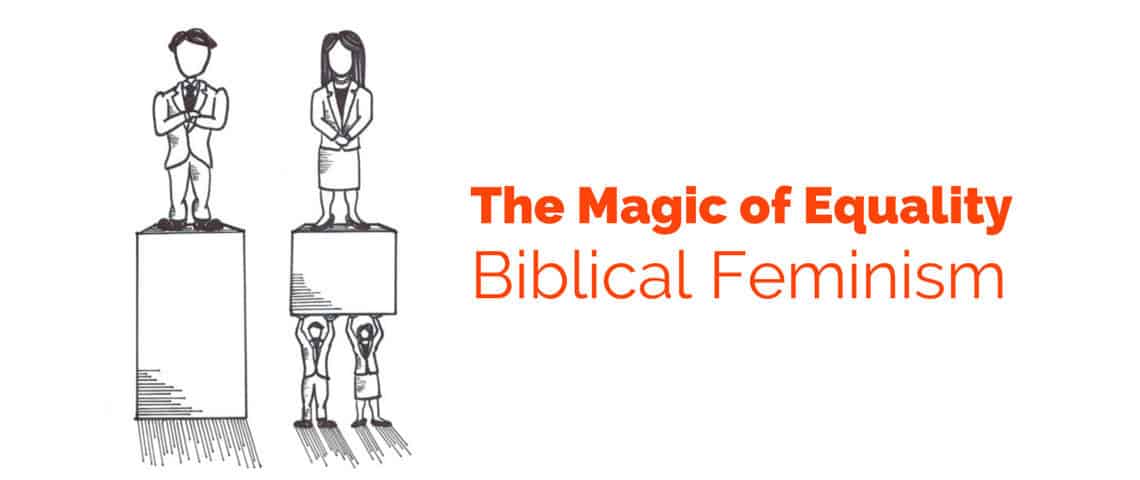
It seems Hermione Granger finally got to speak in front of the “Ministry of Magic”.
Well, sort of. In September of 2014 actress Emma Watson, known for playing Hermione Granger in the Harry Potter series, presented at the (entirely Muggle) United Nations conference, advocating for the organization HeForShe as its goodwill ambassador.
According to the company’s website, HeForShe is “a solidarity movement for gender equality.” Watson emphasized the vital role men must play to help end such inequality, calling for both sexes to work together for the common good. She applauded those who were “inadvertent feminists” in supporting gender equality without realizing that’s what feminism actually means.
Watson’s call for joint cooperation between genders for a greater cause has a resounding Christian theme. It demands God’s body work together to fight injustice and the oppression of its own members.
What would it look like for God’s people to unite in solidarity with one another?
For women to be universally valued for more than their body parts and men allowed to be vulnerable and emotional without it “lessening their manhood?” Is it so hard for us to comprehend that people should be treated like, perhaps, people?
I grew up in a conservative church where women had specific roles, and feminism was just a red card you put down in Apples to Apples to match the green adjectives of “crazy,” “obnoxious” and “useless.” Feminists were blown off as a bunch of bra-burners who hated men – not people a good Christian girl should try to emulate.
I was never explicitly told I was of less importance than men, but I remember being frustrated when told women couldn’t be on the front lines of the military or a police force simply because they were “by nature” nurturing and peaceful and, of course, had to raise their own children. All I heard was that I was being excluded because I had different body parts.
I suppose the first question is: What really is feminism and specifically, biblical feminism?
There are as many interpretations as there are people to interpret, but Dr. Kathryn Smith, a professor of biblical studies at Azusa Pacific University, suggests a definition:
“For me biblical feminism, as I understand it – and to be honest, feminism in general – is the movement and the conviction that all human beings need to be treated with dignity,” Smith said. “All human beings need to have a voice. All human beings need to have enfranchisement in our society. That means that a feminist will also advocate for people of color or people who are being oppressed, whatever their gender is.”
To be clear, this means that feminism is NOT man-hating.
It is not whining about inequality. It does not stem from a bitterness for past wrongs. Rather, it is the simple desire that humans be treated humanely. We are called to love our neighbors, regardless of differences, because they have been made in the image of the Almighty God. Obviously, men and women are different. Our bodies, brains, and abilities are different. We have our unique gifts, strengths, and weaknesses. I believe we can all safely agree that we are different – sometimes it’s just the equal part on which we get hung up.
Dr. Alice Yafeh-Deigh says people often wrongly cite Paul’s statements in 1 Corinthians 11, Colossians 3, 1 Timothy 2, and other passages to support the putting-down of women or other minorities.
“Class is redefined in Christ, race is redefined in Christ, gender is redefined in Christ, but people don’t know that,” Yafeh-Deigh said. “They go to Paul because you can easily cherry-pick from Paul, forgetting that Paul’s letter – all of Paul’s letters – are really occasional letters intended to respond to specific questions in communities.”
Yafeh-Deigh advocates that we rather turn to Christ’s example of bringing those once confined to the private sphere into the public one.
“From the get-go, you see that Jesus had this hugely counter-cultural, boundary-breaking ministry that was intended to include the marginalized of the society, and one group that was included in this marginalized group is women,” Yafeh-Deigh said.
Feminism isn’t about women trying to trump men.
It is about both genders coming together to discover their own identities in Christ and refusing to let others try to limit or stifle either gender.
In the first chapter of “An Anthology,” philosopher Josef Pieper writes: “Two thousand years ago, the Greek poet Pindar expressed [a notion] in this famous statement: ‘Become what you are.’ This says something that seems truly astonishing, namely, that we are not yet what we already are.”
Pieper understood that many of us haven’t yet become who we are meant to be. Some of us have been prevented from becoming who we are supposed to be because other well-meaning Christians have tried to stifle us. However, when Christians fight against injustice together, they are becoming what they were created to be: lovers of righteousness who glorify their Lord through their actions.
Gender inequality doesn’t end when women scream and protest and claw their way to equality, or when men write off those women who do.
God didn’t create two genders so they could subordinate or hurt or oppress one another—men and women aren’t meant to be pitted against each other like congressional parties.
Rather, gender inequality ends when both sexes recognize their own and each others’ inherent value as image-bearers and refuse to let anyone tell them otherwise. As Emma Watson said: “It is time that we all see gender as a spectrum instead of two sets of opposing ideals. We should stop defining each other by what we are not and start defining ourselves by who we are.”
So who are you?
~~~~~~~~~~
This article and illustration first appeared in The Clause, the Azusa Pacific University student newspaper.
 Evan Black is an English/Visual Arts major at Azusa Pacific University. He is passionate about his studies and loves finding creative outlets for his talents. Evan works with APU’s public relations department and serves as a freshman orientation coordinator. He hopes his illustration will inspire people on the journey to equality.
Evan Black is an English/Visual Arts major at Azusa Pacific University. He is passionate about his studies and loves finding creative outlets for his talents. Evan works with APU’s public relations department and serves as a freshman orientation coordinator. He hopes his illustration will inspire people on the journey to equality.




8 responses to “The Magic of Equality: Biblical Feminism”
“Inadvertent feminism” is a great phrase. People can find themselves promoting equality without realizing they are acting in ways that others might identify as feminist. It reminds me of people who claim to be comps and then live their lives as practical egals. Inadvertent egals and inadvertent feminists are good to have around.
It takes women and men together to bear the Image of God. Distorting either part of the image with prejudices of powerlessness or powerfulness mars the reflection of God in the whole. Anyone who isn’t a feminist hasn’t been paying attention. Anyone who thinks feminism is enough will be stuck a really long time.
Well said!
I shared this on my Facebook timeline and got into an interesting exchange with one of my atheist friends. He doesn’t think that there can be a “biblical” feminist because the text is quite patriarchal. He pointed to parts of this piece where Marissa discusses Pauline statements and how using its interpretive intent, rather than the text, means it is no longer “biblical”. He sees how it could be seen as “Christian” feminism, but not biblical feminism.
I explained how “biblical” in the Christian subculture is overloaded with connotations that renders its use to be far broader than a strict literal application.
Anyway, my question to you, Gentle Readers is, does he have a point? Strictly speaking, can there be biblical feminism? Or is Christian feminism a better term and more technically correct?
I also think that we should be recognising and celebrating traditional women’s roles as not ‘worth less’ than traditional male roles. I think that feminism (as it is often defined) went astray when it placed emphasis on trying to be equal to men by taking on men’s roles without recognising nurturing roles as equally important. Doing the same job as a man is *not* what makes me his equal.
I don’t like the term ‘feminist’, in fact I don’t like labels much at all – for the most part they exist to segregate and separate. Some are useful, for example it is useful to label my son as having autism, although he as an individual is not ‘autism’. I wish people would stand up for disability rights in the same way they stand against sexism or racism. I wish people would stand up for those in poverty, who are labelled through no choice of their own but discriminated against nonetheless.
What I’m trying to say is that I stand against oppression in all its forms, and I don’t know if there is a name for that. It would be good if that name were ‘Christian’.
P.S. ‘God didn’t create two genders so they could subordinate or hurt or oppress one another’ – love that line!
“It would be good if that name were ‘Christian’.”
Unfortunately the law which protects women against violence and rape in marriage was not necessarily introduced by a Christian. It was introduced in Canada by a female New Democrat MP in 1983. I don’t know that she was or was not a Christian. However, the males in the legislature just laughed at her proposal that women should be protected from violence in marriage. We have to live with these facts.
What a truly great article! My heart feels empowered and overjoyed to read such words from my brothers and sisters.